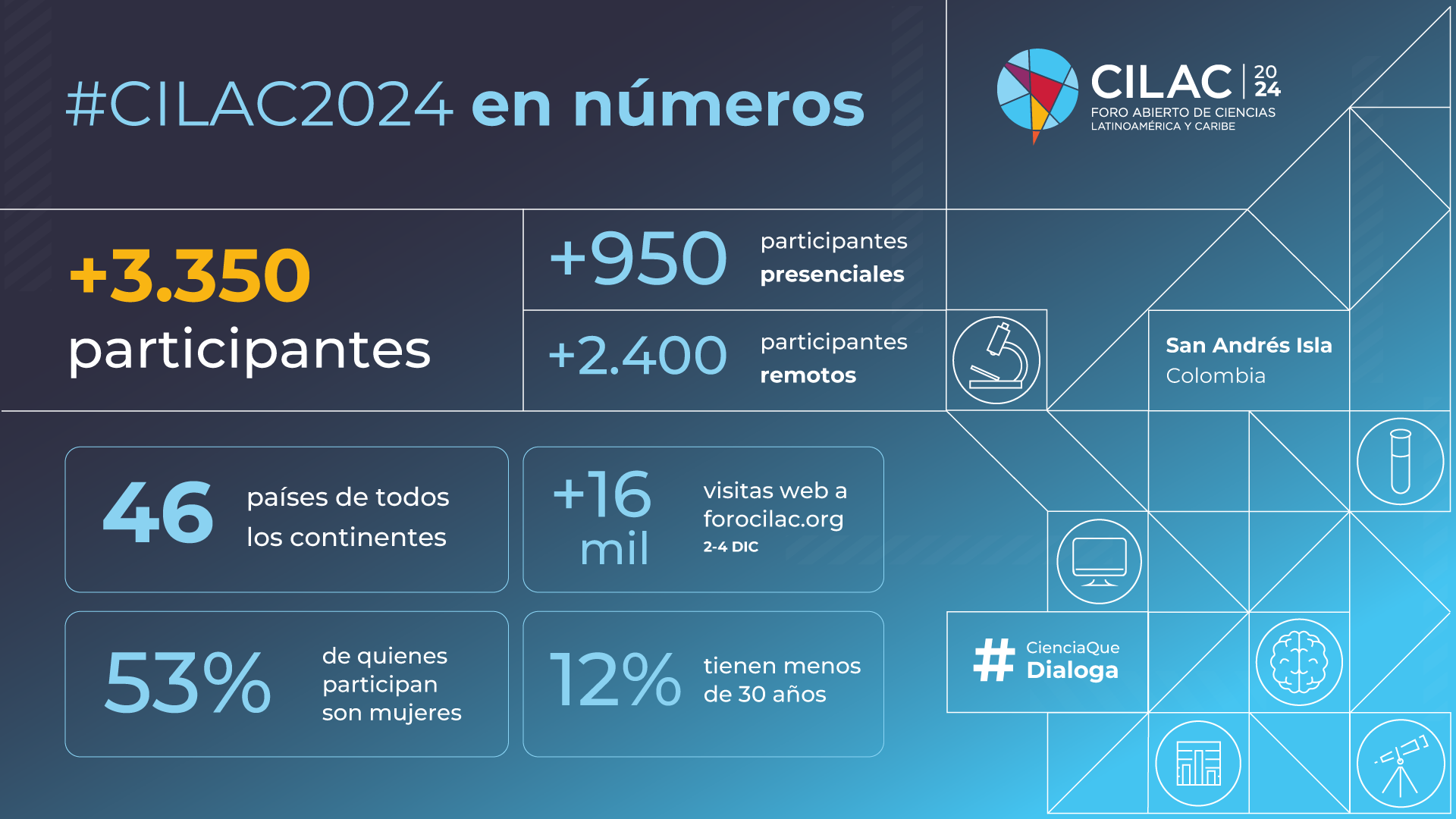From December 2 to 4, San Andrés Island, Colombia, opened its doors to high-level authorities and representatives from more than 46 countries for the fourth edition of the Latin American and Caribbean Open Science Forum (CILAC 2024). With more than 3,350 in-person and remote participants, this high-level event consolidates the CILAC platform as the largest science and technology policy gathering in the region.
With the support of the Government of Colombia and the CILAC Forum Regional Committee (UNESCO, OEI, SEGIB, IDB, ECLAC, RICYT, CUIB, AUGM), CILAC 2024 addressed strategic thematic areas such as artificial intelligence for sustainability, open science, biodiversity, the spatial economy, and the Decade of Ocean Science. The Forum revolved around an essential premise: "Science that dialogues," reaffirming that science is a bridge to peace and development.
San Andrés Island was the epicenter of this week-long science and sustainability gathering. The island warmly welcomed visiting experts and authorities through various cultural and social activities over the three days, organized by the island's government.
Once again, the CILAC Forum proved to be a success in both in-person and remote participation, With more than 950 in-person participants and more than 2,400 who connected to the virtual platform, which included live broadcasts, alternative sessions, virtual institutional stands, and a networking space. Additionally, it is noteworthy that 531 participants were women, and thanks to the activities involving students and young people, CILAC 2024 had 121 participants under the age of 30.

During its second day, the Forum was attended by the President of Colombia, Gustavo Petro, who gave a speech to a packed audience, addressing the various themes of CILAC and the regional challenges and opportunities. The Forum also included the participation of Colombia's Minister of Science, Technology, and Innovation, Yesenia Olaya, as well as officials from the CILAC Forum's regional committee, including Lidia Brito, UNESCO's Deputy Director-General for Natural Sciences.
More than 70 sessions took place over the three days, in addition to the side events that continue throughout the month of December. These sessions generated rich debates and exchanges, resulting in agreements and fostering science diplomacy in Latin America and the Caribbean. In the coming weeks, all content (plenary, high-level, and thematic sessions) from the CILAC Forum will be published online for worldwide access.
CILAC does not stop here. Since 2016, we have published more than 26 documents, conducted more than 300 activities, and had over 45,000 participants. In the coming weeks and months, we will continue to share updates on new activities, initiatives, and document publications to further foster scientific dialogue and contribute to promoting better science and technology policies for the region's sustainable development.
